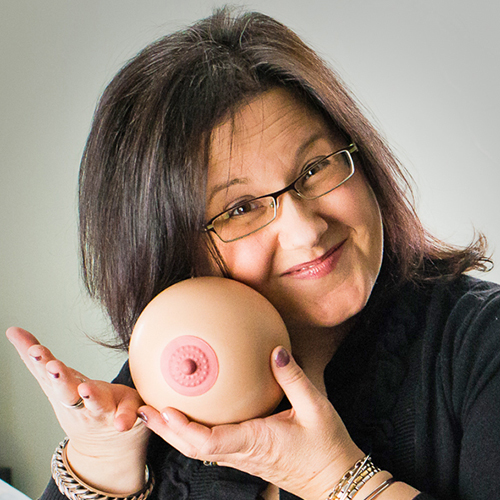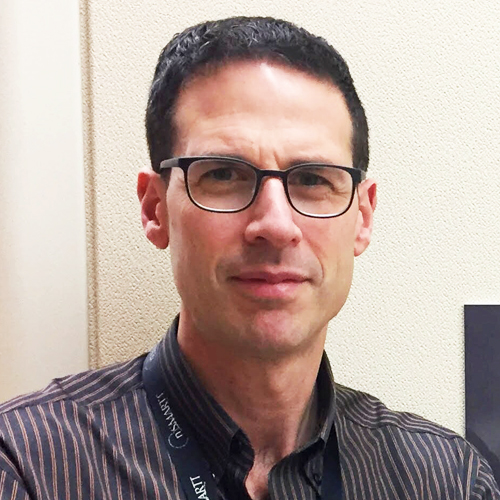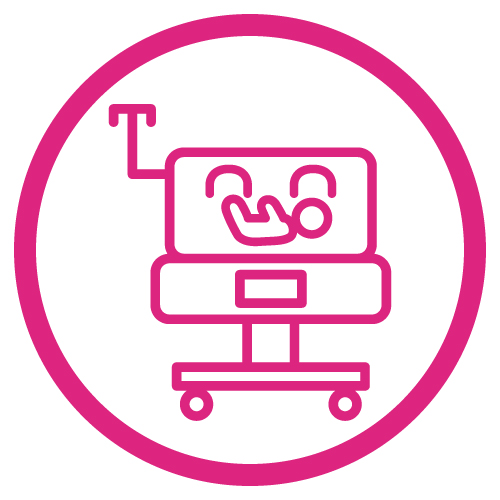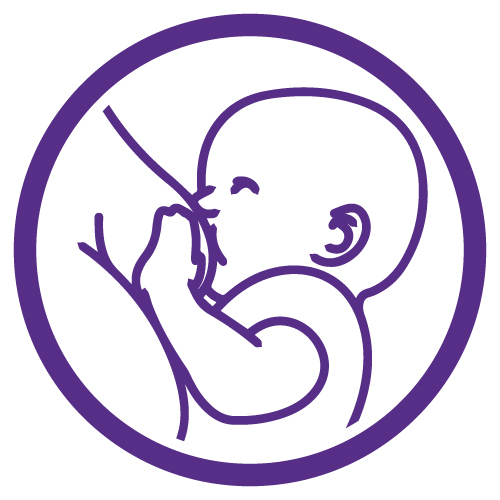 Neonatology Online Course(s) & Continuing Education
Neonatology Online Course(s) & Continuing Education
Access the latest clinical skills and research for Neonatology for Maternal Health professional training. These Neonatology online courses provide practice-changing skills and valuable perspectives from leading global experts. This Neonatology education has been accredited for a variety of CEUs / CERPs and can be accessed on-demand, at your own pace.
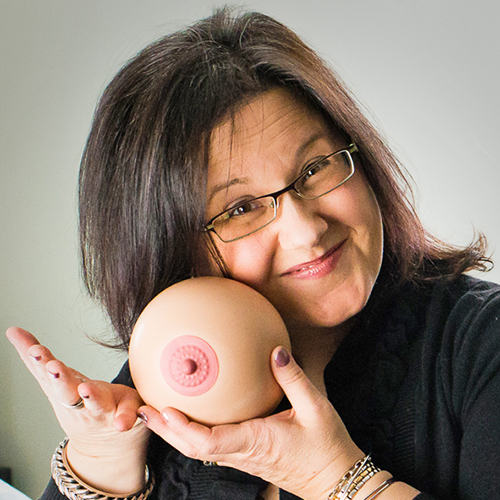
Pumping for Hospitalized Babies: 12 Keys to Supporting Families

Jeanette Mesite Frem, MHS, IBCLC, RLC, CCE is an experienced childbirth educator, IBCLC-lactation consultant and retired birth doula. She started her career working with families while serving as a Peace Corps Volunteer in Côte d'Ivoire, West Africa in the early 90s. She loved that work so much she went on to receive a public health masters degree from Johns Hopkins School of Public Health, focusing her studies on nutrition for maternal and child health. Her two children were breastfed for more than 2 years each and Jeanette has experience pumping at work for both children and has supported more than a thousand families with feeding and pumping over the last 20 years.
Jeanette provides prenatal childbirth and breastfeeding classes at her office in Northborough, Massachusetts, as well as providing virtual and office feeding consultations. She also enjoys leading workshops for perinatal health professionals and mentoring those who work with families. If you have questions, feel free to email [email protected].
Topic: Pumping for Hospitalized Babies: 12 Keys to Supporting Families - [View Abstract]
Perinatal professionals in hospitals have great influence over how much human milk a baby receives, as well as how encouraged parents feel related to pumping and initiating and maintaining their milk production and eventually meeting their infant feeding goals. When hospital staff help with pumping in the early hours, days, and weeks of a new and fragile baby’s life—especially when at breast, chest or body feeding isn’t possible—getting that professional support is likely to make a difference in the long-term health of that child as well as the health of their parent. Healthcare providers can facilitate milk collection and provision of it to babies and support parents with specific and updated guidance on pump choices, pump usage, flange fit and milk storage. Those who work in hospitals with families can make an important positive impact on long-term breastfeeding and human-milk feeding rates. This session will cover 12 simple ways (including the what, why, how, when and where of pumping) that healthcare providers can support parents who pump for their hospitalized baby.

View Details / Enroll
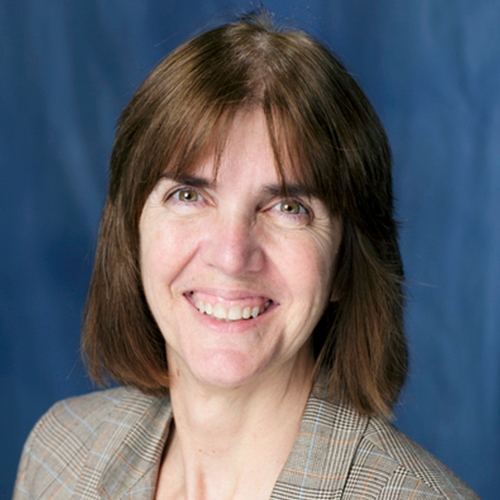
Recognition and Management of the Infant With Congenital Anomalies

Dr. Jacqueline Hoffman has over 37 years in the field of neonatal health care. She completed her Masters in Perinatal/Neonatal Health at the State University of StonyBrook and her DNP at the University of Alabama, Birmingham. She was previously the NNP Track Coordinator and Clinical Faculty at UAB and the University of Florida. She is currently an Assistant Professor at Rush University in Chicago in the DNP-NNP track. She has a clinical practice with Oregon Health & Science University (OHSU) and is the lead NNP at PeaceHealth Southwest in Vancouver, Washington. She precepts medical (family and pediatric residents) and NNP students in her clinical practice. She was part of the original Council for the National Association of Neonatal Nurse Practitioners (NANNP), is a Member-At-Large for the Florida Association of Neonatal Nurse Practitioners (FANNP), and is a member of the Academy of Neonatal Nurses, American Academy of Pediatrics (AAP) Perinatal Section, American Association of Nurse Practitioners (AANP), and member of the Association of Women's Health, Obstetric and Neonatal Nursing (AWHONN). She has authored several book chapters in textbooks targeted for the NNP. She is a nationally known speaker as well as has presented several poster presentations on Case Studies.
Throughout pregnancy, parents begin dreaming of their perfect, healthy baby. What happens when their dreams appear to be shattered by an infant that has obvious dysmorphic features and may have long-term problems? This session will provide an overview of common genetic terms, discussion of classifications of congenital anomalies with common findings, discussion of cytogenetic evaluation, and family communication.
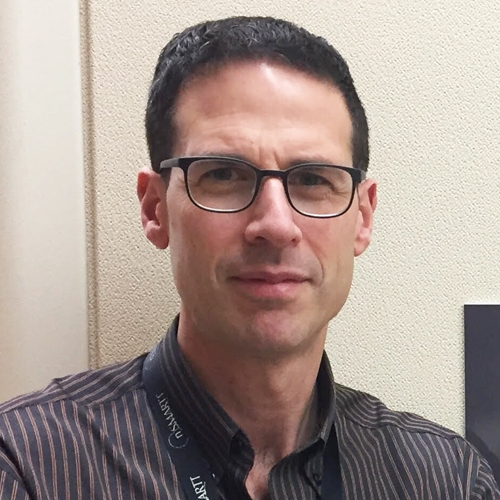

Dr. Narvey began his training in Pediatrics at the University of Manitoba in Winnipeg where he completed a year of further training in Neonatology. This was followed by two years of Neonatal fellowship at the University of Alberta in Edmonton. Afterwards he began his career as a Neonatologist in the same city and over the 6 years he spent there, his career included both clinical and administrative duties including 4 years as the Fellowship Program Director and two years as the Medical Director for a level II unit. In late 2010 he accepted a position in Winnipeg to become the Section Head of Neonatology and continues to hold this post. In 2016 he took on the additional role of Medical Director of the Child Health Transport Team. In 2015 he became a member of the Canadian Pediatric Society’s Fetus and Newborn Committee and in 2019 took over as Chair of the same. His interests predominantly lie in the use of non-invasive technology to minimize painful procedures during an infants stay in the NICU. He is active on social media and has a passion for fundraising and is an active board member of the Children’s Hospital Foundation of Manitoba.
Topic: Human Milk Diet and Fortification: Controversies and Evidence - [View Abstract]
Topic: Many Different Shades of Yellow - [View Abstract]
Topic: Respiratory Problems in the Newborn: Where Are We in 2022? - [View Abstract]
Topic: Sweet and Sour: Hypoglycemia in the Newborn - [View Abstract]
Newborns may develop respiratory distress for a number of reasons. Using a case study approach, several conditions will be explored with emphasis on what the standard of care is and what is the latest in our 2022 toolbox for treating them.


Dr Nandiran Ratnavel has been a Consultant Neonatologist at The Royal London Hospital, Barts Health NHS Trust for 16 years. He is Director of The London Neonatal Transfer Service and Joint Clinical Lead for North East and Central London Neonatal Services. He serves as joint implementation lead for In Utero Transfer Services in London and has recently taken up a position as Neonatal Clinical Lead for the London Maternity and Neonatal Safety Improvement Programme. Finally he has a role as clinical reviewer for the Independent Maternity Services Oversight Panel for the Welsh Government.
Retrieval medicine is associated with certain hazards. These can affect the patient or staff. Avoidable adverse events often arise as a consequence of suboptimal communication, drug error, inadequate preparation or equipment failure. Applying the principles of risk management and clinical safety is essential. To understand issues associated with neonatal transport one needs to look at the infrastructure of transfer teams, arrangements for governance, risk identification, incident reporting, feedback and learning from experience. One also needs to look at audit processes, training, communication and ways of team working. Adherence to current recommendations for equipment and vehicle design are also vital. Benchmarking between services and sharing best practice with a view to optimising safety and reducing risk is recommended.


Leslie Parker has a dual position at the College of Nursing and the College of Medicine at the University of Florida where she is a professor. She has been a neonatal nurse practitioner since 1990 and continues to practice as a neonatal nurse practitioner in the NICU at UF Health. She was the tract coordinator of the neonatal nurse practitioner program from 1992-2011. She has been involved in human milk research for nearly two decades and focuses on improving milk production in mothers of critically ill and premature infants. She is funded by the National Institutes of Health for her team’s work regarding neonatal nutrition including the risk of feeding tube contamination, risks and benefits of gastric residual evaluation and optimizing consumption of breast milk for preterm infants.
Until recently, routine monitoring of gastric residuals has been standard care in most neonatal intensive care units (NICUs). Rationale for this practice includes early recognition of feeding intolerance and necrotizing enterocolitis. However, gastric residuals are often used to direct feeding decisions and thus their use can result in delays and interruptions in feeding resulting in an increased risk of complications. Recent evidence suggests that the routine monitoring of gastric residuals prior to every feeding may not be clinically necessary and other clinical indicators may be sufficient to monitor for feeding intolerance and necrotizing enterocolitis. This presentation will describe practices clinicians are currently using to monitor gastric residuals In addition, an overview of current evidence including the risks and benefits of monitoring gastric residuals, alternatives to monitoring gastric residuals, and how to best change unit practice in order to decrease the routine use of aspirating and evaluating gastric residuals prior to every feeding will be presented.
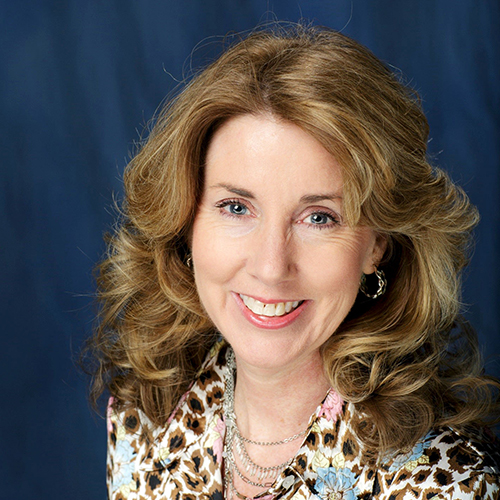
View Details / Enroll
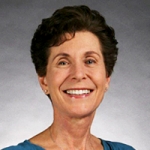
Seven Neuroprotective Core Measures: A Model for Implementing Family-Centered Developmental Care in the NICU

After raising three children as a stay-at-home mother, Dr. Phillips received a Masters degree in Developmental Psychology, became NIDCAP certified as an Infant Developmental Specialist, and then attended medical school at University of California, Davis, graduating in 2004. She completed her pediatric residency and neonatology fellowship at Loma Linda University Children's Hospital in Loma Linda, CA and is currently an attending neonatologist in the NICU at the same hospital as well as Co-Medical Director of Newborn Nursery at Loma Linda University Medical Center-Murrieta. Dr. Phillips is an International Board Certified Lactation Consultant and is a Fellow of the Academy of Breastfeeding Medicine. She is the immediate past president of the National Perinatal Association. Her primary areas of interest are mother-infant attachment, breastfeeding education and support, and Family-Centered Neuroprotective Care of premature infants in the NICU.
There is ample evidence that Family-Centered Developmental Care in the NICU results in improved neonatal and neurodevelopmental outcomes, increased family satisfaction and even enhanced employee satisfaction once the culture change has been accomplished. However, implementing the known principles of Family-Centered Developmental Care in the NICU to create those culture changes has long been a challenge. Several models of implementing developmental care have been tried and met with varying challenges and degrees of success. The Seven Neuroprotective Core Measures of Family-Centered Developmental Care in the Neonatal Integrative Developmental Care Model has been trialed in our NICU for the past three years and has proven to be effective as a tool to bring about staff buy-in and engagement in the process of implementing Family-Centered Developmental Care principles into the culture of our NICU.

View Details / Enroll
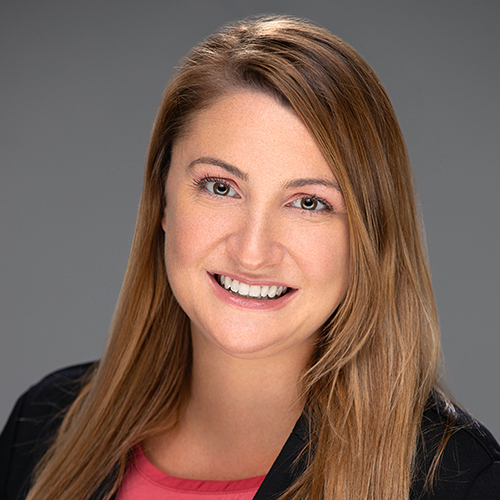

Dr. Jennifer Barnes is the Neonatal Intensive Care Clinical Pharmacy Specialist at Levine Children’s Hospital in Charlotte, NC. She has over 10 years of experience within the field. Dr. Barnes received her bachelor’s degree at Virginia Tech and her Doctor of Pharmacy at Virginia Commonwealth University’s Medical College of Virginia. She completed her pharmacy practice residency at Alamance Regional Medical Center- Cone Health. Dr. Barnes is board certified in pediatric pharmacotherapy. She is also an active member of the Pediatric Pharmacy Association (PPA) and is currently serving as the neonatology committee chair. Dr. Barnes serves as a clinical assistant professor for pharmacy advanced practice rotations for University of North Carolina, University of South Carolina, Wingate University and High Point University. Her current research areas of interest include the role of diuretics in bronchopulmonary dysplasia treatment and antibiotic stewardship for late-onset sepsis amongst other topics.
Topic: Get the LOW Down on Neonatal Hypotension - [View Abstract]
Topic: Starbucks for Babies? Caffeine Use in Neonates - [View Abstract]
Caffeine is one of the most prescribed medications within the neonatal intensive care unit (NICU). This presentation will summarize the current understanding of caffeine therapy in neonates including the various indications. Caffeine is the medication of choice for apnea of prematurity (AOP) however it has been shown to be beneficial in several other disease states and conditions. Despite the widespread use of caffeine, there is not consensus on optimal dosing regimen or timing. We will review the supporting literature for the nuances of caffeine dosing regimens and schedules. While caffeine is generally considered a safe medication, we will also discuss potential side effects for monitoring. After this presentation, the audience will have a full picture of the pros and cons of this ubiquitous medication in our NICU population.

Supporting Early Oral Feeding Experiences in the NICU: Utilizing the Lens of Orofacial Myology

Ramya Kumar is an ASHA certified Speech Language Pathologist specializing in infant and pediatric feeding disorders while practicing in a Level 3 NICU and outpatient settings in Phoenix, AZ. She is a Board Certified Specialist in Swallowing & Swallowing Disorders, Certified Neonatal Therapist, International Board Certified Lactation Consultant, Neonatal Touch & Massage Certified Therapist & has completed the Trauma Informed Professional Certificate. Ramya is an internationally sought out speaker & clinical mentor on the topic of neuroprotective care in the NICU, Pediatric Feeding Disorders and Tethered Oral Tissues. Ramya is passionate about helping families create mealtime success through a whole-body lens. More recently, Ramya has been serving as a NICU Developmental Coordinator championing changes in unit culture, system-wide policy development and supporting transition of NICU families to community based programs. She has also co-founded Arizona NICU Follow-Up Specialists, a community resource supporting NICU grads and their families as they transition from hospital to home.
Topic: Trauma Informed and Family Centered Care! Keeping the Family Unit at the Center of a Tongue-Tie Treatment Model - [View Abstract]
One of the most complex and challenging tasks required of an infant in the neonatal ICU (NICU) is oral feeding. Oral feeding progression is also one of the most critical pieces of the discharge puzzle. Depending on their medical and nutritional needs, these infants often experience procedures like intubation and/or placement of medically necessary interfaces like nasal prongs, CPAP masks, orogastric and nasogastric feeding tubes. Intra-oral presence of tubes paired with the sensory motor implications of tape used to secure these interfaces and the overall challenges of a developing infant in the ex-utero environment places these infants at risk for oral feeding difficulties downstream. This presentation will provide participants with ways to support the developing oral structures and subsequent oral motor and oral sensory components of a neonate in an attempt to support breast and bottle feeding progression in the NICU.
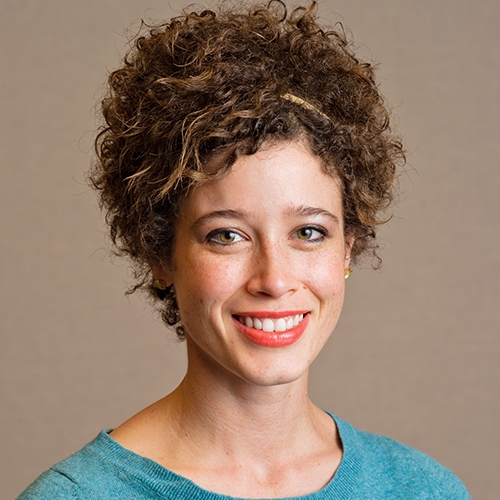
Supportive Breastfeeding Practices for Infants With Swallowing Challenges in the NICU

Chesney Willis, MHS, CCC-SLP, IBCLC is a certified speech language pathologist and lactation consultant from the University of Missouri Women’s and Children’s hospital. She earned her master of health sciences degree from the University of Missouri in 2008 and obtained her IBCLC in 2017. Chesney has over 13 years of experience working across outpatient rehabilitation, home-health, inpatient care for pediatrics and neonates in level II and III NICU settings. Clinical expertise includes evaluation and treatment of disordered swallowing and feeding in special neonate populations. Experience includes the development and dissemination of education for best feeding practices for late preterm and preterm infants to families and inter-disciplinary health care providers. She is passionate about supporting mother-baby breastfeeding dyads with special feeding considerations from hospitalization through the transition to home.
In this session, learners will explore the transition from gavage to breastfeeding in the NICU from the perspective of a premature infant. Babies born prematurely or with special needs typically develop safe feeding and swallowing at a slower rate. Early coordination of the swallow may be appreciated between 32 and 34 weeks gestation, with variability depending on degree of prematurity and underlying health conditions. Early breastfeeding success depends on identifying stress cues during feeding, teaching modifications, and keeping a flexible, developmentally sensitive care plan. Participants will learn to recognize bedside clinical signs of aspiration with special discussion of cough maturation and its long-term clinical implications.
Providers will be encouraged to support families from early antepartum with imminent preterm delivery, postpartum during the “golden hour” for an exclusively pumping mom, and introduction to Mother’s milk with early swallowing at bedside in the NICU. Working closely with lactation and therapy services ensures appropriate education and successful developmental expectations for the individualized NICU infant. Lastly, as families prepare for home, the importance of an inter-disciplinary team approach with appropriate discharge recommendations and community supports will be highlighted.


Dr. Narvey began his training in Pediatrics at the University of Manitoba in Winnipeg where he completed a year of further training in Neonatology. This was followed by two years of Neonatal fellowship at the University of Alberta in Edmonton. Afterwards he began his career as a Neonatologist in the same city and over the 6 years he spent there, his career included both clinical and administrative duties including 4 years as the Fellowship Program Director and two years as the Medical Director for a level II unit. In late 2010 he accepted a position in Winnipeg to become the Section Head of Neonatology and continues to hold this post. In 2016 he took on the additional role of Medical Director of the Child Health Transport Team. In 2015 he became a member of the Canadian Pediatric Society’s Fetus and Newborn Committee and in 2019 took over as Chair of the same. His interests predominantly lie in the use of non-invasive technology to minimize painful procedures during an infants stay in the NICU. He is active on social media and has a passion for fundraising and is an active board member of the Children’s Hospital Foundation of Manitoba.
Topic: Human Milk Diet and Fortification: Controversies and Evidence - [View Abstract]
Topic: Many Different Shades of Yellow - [View Abstract]
Topic: Respiratory Problems in the Newborn: Where Are We in 2022? - [View Abstract]
Topic: Sweet and Sour: Hypoglycemia in the Newborn - [View Abstract]
Hypoglycemia is one of the most common problems encountered by the practitioner in newborn care. How low is too low and how does the age of the patient influence these thresholds? Moreover, when a patient’s blood glucose is found to be low, what are the best steps to take in order to normalize it? This is not your usual talk on hypoglycemia but rather one that looks at the journey one center took in its quest to answer these questions. On this path we encountered some results that were definitely “sweet” and others that left a “sour” taste in our mouths. In this talk you will be follow the story of our center which produced a cautionary tale that demonstrates that you shouldn’t always believe everything you read!

View Details / Enroll



